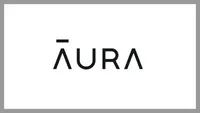Billions of stolen cookies are still for sale on the internet - here's how to stay safe
Convenience has come at a cost

Sign up for breaking news, reviews, opinion, top tech deals, and more.
You are now subscribed
Your newsletter sign-up was successful
- Research from NordVPN reveals 94 billion stolen cookies on the dark web
- Only a small percentage of these are still active
- These cookies represent serious risk for customers
New research from NordVPN has revealed cookies, the small information files generated from web servers and sent to web browsers, are being leaked and exploited on the dark web in huge numbers.
The findings calculate there to be around 94 billion cookies circulating on the dark web, with almost 42 billion of these originating from Redline, a notorious infostealer malware - although only 6.2% of these were still active, meaning they have a relatively short lifespan.
In fact, most were inactive, with only 7.2% of the 10.5 billion cookies identified from Vidar showing as valid, alongside 6.5% of LummaC2 - a newer infostealer service - which has collected a total of 8.8 billion stolen cookies. There is one outlier though, with CryptBot proving by far the most effective malware given that 83.4% of the 1.4 billion cookies stolen are still active.
Save up to 68% on identity theft protection for TechRadar readers!
TechRadar editors praise Aura's upfront pricing and simplicity. Aura also includes a password manager, VPN, and antivirus to make its security solution an even more compelling deal.
Preferred partner (What does this mean?)
What’s inside?
This isn’t the first time NordVPN has warned that cookies are being abused, with millions of stolen UK consumers internet browser cookies leaked on the dark web in 2024, although globally the total for 2024 was 54 billion - outlining an increase year-on-year.
These cookies from the dataset contained a range of different information types, with the most common keywords being “ID” (18 billion), alongside “session” (1.2 billion), “Auth” (292 million), and “login” (61 million) - this is particularly worrying, as it suggests that they could be used “hijack live sessions without a password”. The researchers warn;
“Cookies may sound sweet, but sometimes they can leave a bad taste. The truth is, even the most seemingly unimportant cookies can do a lot of damage to you or your business. Once one door is open, it isn’t that difficult to open others. Session cookies, especially active ones, are a goldmine. They let attackers skip login pages altogether.”
That’s not all though. These cookies could allow attackers to take over social media accounts, bypass two-factor authentication, launch social engineering attacks, or even access sensitive financial information.
Sign up to the TechRadar Pro newsletter to get all the top news, opinion, features and guidance your business needs to succeed!
You might also like
- Take a look at our picks for the best malware removal software around
- Check out our choice for best antivirus software
- Billions of credentials were stolen from businesses around the world in 2024

Ellen has been writing for almost four years, with a focus on post-COVID policy whilst studying for BA Politics and International Relations at the University of Cardiff, followed by an MA in Political Communication. Before joining TechRadar Pro as a Junior Writer, she worked for Future Publishing’s MVC content team, working with merchants and retailers to upload content.
You must confirm your public display name before commenting
Please logout and then login again, you will then be prompted to enter your display name.
